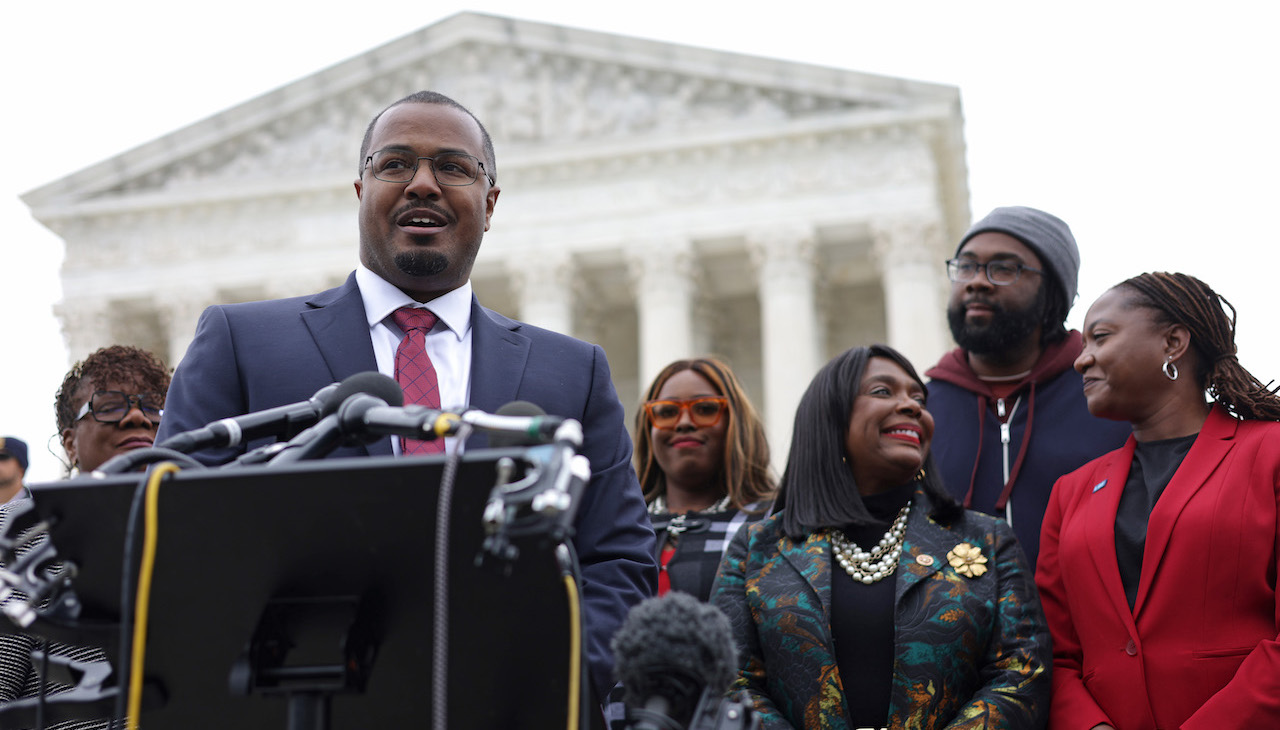
Supreme Court backs Black voters in Alabama and surprisingly defends the Voting Rights Act
Chief Justice John Roberts and Justice Brett Kavanaugh joined the liberal side of the Court in a 5-4 ruling.
After allowing Alabama to use its newly-redistricted, but court-challenged Congressional map for the 2022 election season, the Supreme Court of the U.S. ruled on Thursday for the state to redraw it entirely.
It comes after the Court ruled 5-4 to uphold a lower court ruling that said map likely violated the Voting Rights Act. Chief Justice John Roberts and Justice Brett Kavanaugh joined the liberal justices in the decision.
Of the seven Congressional districts allocated for Alabama and by its state legislature after the 2020 Census, only one was majority Black. One in four Alabama residents is Black, and they lean Democrat in elections.
It made the decision handed down by the Court on Thursday a closely-watched affair, especially as Republicans currently cling to a slim, 10-seat advantage in the House. With the likely creation of another majority-Black district in Alabama, it could mean Democrats have a shot at picking up another seat in the chamber.
The 5-4 ruling was also a surprise to many observers around the country because of both recent actions by the Supreme Court on the case itself and previous rulings surrounding the Voting Rights Act.
For one, the Court allowed the challenged maps to still be used in the 2022 election cycle and during arguments back in October 2022, the justices seemed willing to make it harder to use racial discrimination as a challenge to redistricting.
Secondly, the Court itself had already pared down the landmark Voting Rights Act of 1965 in two separate decisions from 2013 and 2021.
In 2013, the Supreme Court stripped the federal government of its oversight duties on redistricting in 15 states it identified with a history of discrimination in voting. Most of those states were in the South and under the Voting Rights Act, the federal government had the final approval on their redistricted maps.
The legislation took another hit in 2021, as the new, conservative majority Supreme Court took the side of Republicans in Arizona that placed limits on voting in the state.
RELATED CONTENT
In both, Chief Justice Roberts took the side of conservatives on the Court.
That was not the case on Thursday, and it led to a wave of praise for a Supreme Court that’s seen its integrity questioned more than ever before of late.
“Today’s decision rejects efforts to further erode fundamental voting rights protections, and preserves the principle that in the United States, all eligible voters must be able to exercise their constitutional right to vote free from discrimination based on their race,” U.S. Attorney General Merrick Garland said of the decision.
The Biden Administration also backed Alabama Black voters in the case.
Its outcome also has ramifications for another case of redistricting discrimination in Louisiana. There too, is the potential for a second majority-Black Congressional district that was not included in the final version of the map. It was also used in the 2022 election cycle and will be redrawn before next year’s elections.
According to national anti-gerrymandering advocates, maps in Texas and Georgia could also be affected by the decision. South Carolina will also get its day in the Supreme Court very soon regarding another case of potential redistricting discrimination in favor of a Republican seat.











LEAVE A COMMENT: